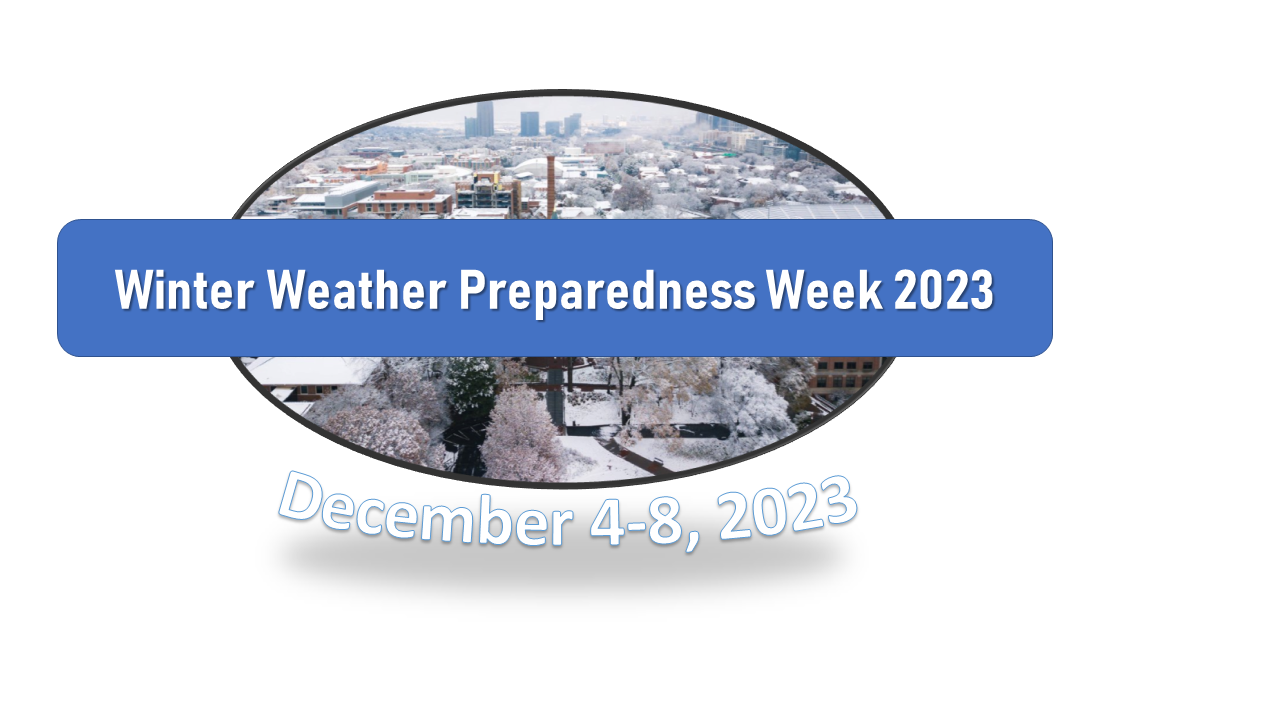
Winter Weather Preparedness Week for Georgia is December 4 - 8, 2023. The main threats from winter weather across the Southeast stem from snow and ice storms. Last winter season (2022-2023) was the fifth warmer than normal winter in a row! In fact, it was one of the top 10 warmest winters on record at all four of our official climate sites (Atlanta, Athens, Columbus, and Macon). With the mostly much warmer than normal winter last year, there was no notable winter weather in our area other than a brief cold air outbreak around Christmas. However, even in a warmer-than-normal winter, bouts of cold weather can still bring treacherous winter conditions, so it's important to remain prepared. Take a look below at some of the more recent significant winter weather events that have occurred in our area. Also, read below for the current outlook for the winter ahead.
Recent Winter Weather Events:
*For more winter weather information and resources visit the National Weather Service's Winter Safety Page.
Wind chill takes into account how wind and cold feel on exposed skin rather than solely the actual temperature. As the wind increases, heat is carried away from the body at an accelerated rate, driving down the body temperature. Animals are also affected by wind chill.
![[ Wind Chill Chart. ]](/images/ffc/windchill_new.gif) |
Frostbite and hypothermia are two health hazards associated with cold weather. Frostbite is damage to body tissue caused by extreme cold. A wind chill of -20°F will cause frostbite in just 30 minutes. Frostbite causes a loss of feeling and a white or pale appearance in extremities, such as fingers, toes, ear lobes or the tip of the nose. If symptoms are detected, get medical help immediately! If you must wait for help, slowly rewarm the affected areas. However, if the person is also showing signs of hypothermia, warm the body core before the extremities.
Hypothermia is a condition that can kill and is brought on when the body temperature drops to less than 95°F. Warning signs include uncontrollable shivering, memory loss, disorientation, incoherence, slurred speech, drowsiness and apparent exhaustion. Take the person's temperature and if below 95°F, seek medical care immediately.
It is important to have a safety kit both at home and in the car that can be used not only in winter weather situations but also for other emergencies. Ready Georgia provides a list of items to include in your emergency kit. The following safety tips are provided by the National Oceanic and Atmospheric Administration (NOAA), the Federal Emergency Management Agency (FEMA) and the American Red Cross.
If caught outside in a winter storm:
![[ Wind Chill Chart. ]](/images/ffc/Winter_For_Your_Car.jpg) |
The current outlook from the Climate Prediction Center (CPC) is as follows:
What does this mean?
A strong El Niño is forecast to remain in place through the winter, which would favor wetter conditions across the Southeast. While there is no particularly strong signal for below normal or above normal temperatures, it is important to remember that periods of cold weather will occur, even during an overall warmer season. In fact, some of our significant winter weather events listed above occurred during overall warmer seasons. Thus, it is important to remain prepared for winter weather!
For more technical information on how to interpret climate outlooks and detailed descriptions of the tools used to create these outlooks visit this link.
Looking for winter weather safety tips and more details about our local winter weather program?